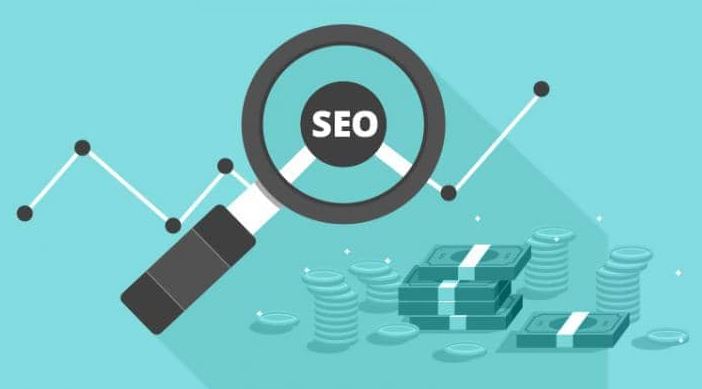Premium Link-Building Services
Explore premium link-building options to boost your online visibility.
Explore premium link-building options to boost your online visibility.

In the world of digital marketing, search engine optimization (SEO) is a critical factor for driving organic traffic and achieving higher rankings on search engine results pages (SERPs). While on-page SEO focuses on optimizing individual web pages through content, meta tags, and site structure, off-page SEO deals with building authority and trust from external sources. One of the key aspects of off-page SEO is earning high-quality backlinks, which signal to search engines that your website is credible, authoritative, and worthy of ranking well.
In this article, we will dive into the essentials of off-page SEO, the importance of building backlinks, and how to implement effective strategies to improve your website’s authority and online visibility.
Off-page SEO refers to all the activities and strategies you perform outside of your website to improve its search engine rankings. While on-page SEO is about optimizing content and website structure, off-page SEO is about boosting your website’s credibility through external sources, such as links from other websites, social media mentions, and brand citations.
Backlinks, which are links from other websites pointing to yours, are the most critical element of off-page SEO. Search engines like Google view backlinks as votes of confidence or endorsements from other sites. The more authoritative and relevant the site linking to you, the more value it provides for your website’s SEO.
Search engines use complex algorithms to determine the relevance and authority of websites. While on-page SEO helps search engines understand what your website is about, off-page SEO indicates how much authority your site has in the broader web ecosystem.
Backlinks from reputable websites are seen as trust signals by search engines. Google’s algorithm, for example, takes into account the number of backlinks and the quality of the sites linking to you when determining where to rank your content in the SERPs.
However, not all backlinks are created equal. Low-quality or spammy links can actually hurt your rankings, while high-quality backlinks can significantly boost your website’s visibility. The goal of off-page SEO is to earn high-quality backlinks from authoritative, relevant websites to increase your domain authority and improve your rankings.
There are several key strategies and elements that contribute to a strong off-page SEO campaign. Here’s a breakdown of the most important ones:
Link building is the process of acquiring hyperlinks from other websites that direct users back to your site. Backlinks are one of the strongest ranking signals used by search engines to assess your website’s authority and relevance.
There are several ways to build backlinks, including:
Organic link building: When websites naturally link to your content because they find it valuable or useful.
Outreach campaigns: Reaching out to other website owners, bloggers, or influencers to request a backlink or collaborate on content.
Guest blogging: Writing high-quality articles for other websites in exchange for a link back to your site.
Content marketing: Creating valuable, shareable content such as infographics, videos, or blog posts that attract links from other sites.
The key to successful link building is focusing on quality over quantity. A few backlinks from high-authority sites like industry publications, academic institutions, or government websites will have a much bigger impact than many links from low-authority or irrelevant sites.
While social media links themselves do not directly affect search engine rankings, social signals—such as likes, shares, and mentions—can enhance your site’s authority and increase visibility.
Here’s how social media contributes to off-page SEO:
Brand visibility: Increased social media activity helps raise brand awareness, leading to more people visiting your site and potentially linking to your content.
Content amplification: When your content gets shared widely across social media platforms, it increases the chances of other websites discovering it and linking to it.
Engagement: Active social media profiles show search engines that your brand has an engaged audience, which can indirectly influence rankings.
By maintaining a strong social media presence on platforms like Facebook, Twitter, LinkedIn, and Instagram, you can amplify your content, drive traffic to your site, and enhance your off-page SEO efforts.
Brand mentions, even without a direct link, can positively influence your site’s authority. These mentions can happen in articles, reviews, or even social media discussions.
Here’s how brand mentions work in off-page SEO:
Implied links: Search engines can associate non-linked brand mentions with your website, interpreting them as signs of authority.
Citations: Local SEO benefits from citations, which are mentions of your business name, address, and phone number across various websites like local business directories, review sites, or news outlets. Consistent citations help boost your local search rankings.
Monitoring your brand mentions using tools like Google Alerts or SEMrush can help you identify opportunities to convert mentions into backlinks or engage with audiences to strengthen your online presence.
Influencer marketing is a powerful off-page SEO tactic where you collaborate with influencers in your industry or niche to promote your brand, content, or products. Influencers often have large, engaged audiences and can drive significant traffic and links to your site.
When an influencer mentions or links to your site, it can:
Increase traffic from a highly targeted audience.
Boost brand credibility and trust, as influencers’ endorsements are seen as valuable by their followers.
Improve your chances of earning backlinks from other websites that follow the influencer’s recommendations.
Influencer collaborations can take many forms, such as guest posts, product reviews, or social media promotions, and are an effective way to enhance your off-page SEO efforts.
Participating in relevant forums, discussion boards, and Q&A platforms can also be an effective off-page SEO strategy. By contributing valuable insights or answering questions related to your industry, you can increase your brand’s visibility and earn backlinks.
Here are a few tips for leveraging forums and communities for off-page SEO:
Provide value: Don’t just post links to your site. Offer valuable information, answer questions, or share resources that genuinely help the community.
Be relevant: Participate in niche-specific forums and communities where your target audience is active, such as Reddit, Quora, or industry-specific groups on LinkedIn or Facebook.
Link naturally: When it’s appropriate, include a link to your site if it adds value to the discussion. Be mindful not to spam forums with links, as this can harm your reputation.
This approach not only helps build backlinks but also establishes your brand as a thought leader in your industry.
Guest blogging remains one of the most effective off-page SEO strategies for building backlinks and establishing authority. By writing high-quality content for other websites in your niche, you can earn valuable backlinks while reaching new audiences.
To get the most out of guest blogging:
Target reputable sites: Focus on websites that have a high domain authority and are relevant to your industry or niche.
Create valuable content: Write in-depth, high-quality articles that offer real value to the host website’s audience.
Include a link back to your site: Typically, guest bloggers are allowed to include one or more backlinks to their own website, either in the body of the article or in the author bio.
Guest blogging helps you build relationships with other website owners, increase your site’s visibility, and earn high-quality backlinks that contribute to off-page SEO.
As mentioned earlier, not all backlinks are created equal. Google and other search engines prioritize the quality of the backlinks pointing to your site, so focusing on high-quality, authoritative links is critical.
A high-quality backlink typically comes from:
Authoritative websites: Backlinks from trusted, authoritative websites (such as major news outlets, government sites, or educational institutions) are highly valuable.
Relevant sites: A link from a website in the same or related industry as yours is more valuable than a link from an unrelated site.
Natural links: Links that are earned organically because someone finds your content valuable and chooses to link to it carry more weight than links you’ve paid for or forced.
Avoid low-quality or spammy backlinks, as these can result in penalties from search engines. Buying backlinks or engaging in manipulative link-building practices can harm your site’s rankings and damage its reputation.
Off-page SEO plays a critical role in improving your website’s search engine rankings and building its online authority. By focusing on earning high-quality backlinks through link building, social media engagement, influencer collaborations, guest blogging, and more, you can significantly boost your site’s credibility and visibility.
While off-page SEO takes time and effort to execute effectively, the long-term benefits of a strong backlink profile, increased authority, and higher search rankings are worth the investment. By developing a comprehensive off-page SEO strategy, your website will become a trusted source in its industry, attract more traffic, and achieve sustained success in the competitive digital landscape.
